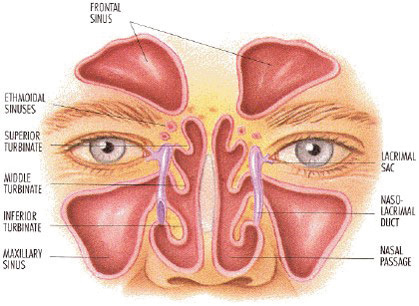 Courtesy photo
Courtesy photo Courtesy photo
Courtesy photoHealth News:
If you are like many of our patients, and suffer from allergies, then you know the miserable side effects: itchy eyes and skin, sneezing, congestion, a runny nose or postnasal drip down the back of your throat.
The allergic reaction you experience is your body’s response to the allergen, which it sees as harmful, even though it really isn’t. Your immune system responds by creating inflammation in your sinuses, skin, airways or digestive system.
Your environment has a lot to do with allergy symptoms. Hot, dry and windy weather can hold more allergens in the air. On cool, damp days, allergens and pollen are more likely to be washed to the ground and out of the air you breathe.
For some people, allergy season is just that—a short period of time and then symptoms subside. For others, allergy symptoms can persist – or develop into other issues like ear or sinus infections that become frequent. The treatment varies, based on the allergy symptoms and how they affect a patient’s quality of life.
Avoiding the allergen is the best option, but can be very difficult. Saline spray in the nasal passages and using a HEPA filter at home can be beneficial. Standard over-the-counter therapies can be very effective in treating mild to moderate allergy symptoms. Nasal steroids such as Nasacort or Flonase and oral antihistamines, such as Cetirizine or Loratadine can reduce these symptoms.
If allergen avoidance and standard medical therapy do not improve allergy symptoms, immunotherapy is the gold standard of treatment.
Immunotherapy is a treatment used to relieve the symptoms of “hay fever” or allergic asthma that works similar to a vaccine. Your body responds to allergens that are either injected under the skin or placed as drops under the tongue, given in gradually increasing doses. Over time, this can develop immunity, or tolerance to those allergens. Common allergens include pollen from trees, grasses and weeds, mold spores, animal dander, and certain insects.
It may seem strange that a treatment for your allergies actually includes the substance that you’re allergic to, but when prescribed and formulated correctly, the introduction of small amounts of the allergen over 3-5 years, a person’s immune system become strained to no longer react inappropriately to the allergens, and they are less likely to experience allergy symptoms. Patient using allergy drops under the tongue often reach their therapeutic dose much quicker than allergy shots.
Immunotherapy can help patients who have allergic rhinitis or conjunctivitis (inflammation of the membrane in the eye), asthma that is made worse from the allergies, sensitivity to insect bites, or eczema, a skin condition that may be caused by dust mite allergies.
In addition to treating the symptoms directly associated with allergies or asthma, allergy immunotherapy has been shown to prevent or reduce the development of other chronic life-long conditions in children, if started early enough.
Studies of children receiving immunotherapy have shown a decreased chance of developing asthma, improvement of asthma symptoms, a decrease in development of new allergy sensitivities, and reduction in pharmacy, outpatient, and total health care costs.
Immunotherapy has also been shown to benefit children with atopic disease, who have been shown to develop certain cardiovascular risk factors more frequently. Atopic disease in children is made up of three conditions: asthma, allergic rhinitis (hay fever) and atopic dermatitis (eczema). These are associated with chronic inflammation, impaired physical activity, sleep disturbance, and higher rates of hypertension and high cholesterol. Treating a child’s allergies has been show to help reduce his or her cardiovascular risk.
Those who suffer from sinusitis may develop sinus infections due to their allergies. By treating the allergies, many people see dramatic improvement in their sinus conditions.
At National Sinus Institute (NSI), we offer allergy consults with our providers to review strategies for avoiding pollen, options for medical therapy, testing to determine the pollens causing your allergies and allergy shot and allergy drop immunotherapy.
Call your NSI Los Alamos clinic today at 505.661.4147 to get on the road to improving your allergy symptoms.

